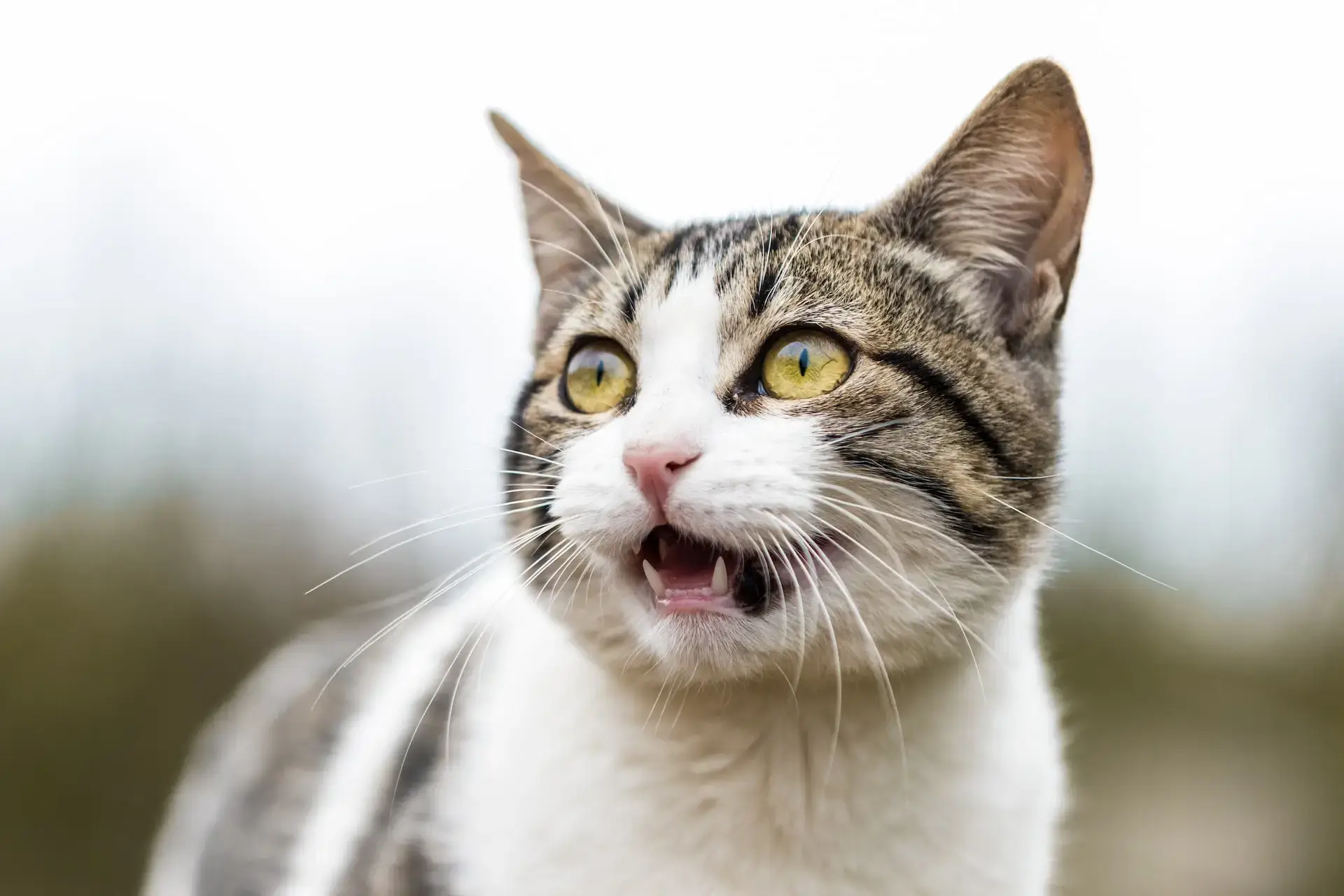Did you know that cats become seniors as early as age 9? Our feline buddies usually live 14 to 17 years, but they can live even longer with good care. A nine-year-old kitty may still have plenty of time left! However, she will need some extra TLC as she ages. A Carmel Valley, CA vet discusses caring for an older cat below.
Beds
Senior cats are absolute masters at napping. Fluffy can spend up to 20 hours a day snoozing. Offer your drowsy furball lots of comfy beds to snuggle up in.
Veterinary Care
Fluffy will need to see her doctor more often as she ages. Your vet may recommend bringing her in twice a year. Kitties with medical issues may need to come in even more often. At home, watch for signs of illness, such as hiding, poor grooming, vomiting, diarrhea, and/or litterbox woes. Call your vet immediately if you notice anything unusual. For those instances where more complex care is needed, our clinic also provides specialized “Veterinary Surgery” services to address serious health issues effectively.
Ramps/Kitty Stairs
Older cats sometimes have trouble jumping up to their favorite napping spots. Set out some pet ramps for Fluffy. You can also just arrange footstools or ottomans so that she can use them as stairs.
Litterbox
Get your feline pal a litterbox with low sides. This will be easier for her to climb in and out of. If your home has more than one story, put litterboxes and water bowls on every level.
Nightlight
It’s not uncommon for senior kitties to develop vision problems. Many have trouble seeing when it’s dark. Keep a nightlight on for Fluffy after bedtime.
Playtime!
Fluffy won’t be as active as she once was, but she’ll still have her moments of friskiness. Regular play sessions will help keep your cute pet fit. They will also benefit her mentally. Try to make time for this daily. Similarly, understanding different dog breeds, like Bull Terriers, is important for their care. Learn more by checking out our article on “Today’s Spotlight: Bull Terrier Dogs.”
Safety
Cats face some very serious threats outside, such as traffic, weather, and stray or wild animals. Older furballs are especially at risk. Fluffy may not be quick enough to evade danger. She could also forget how to get home, especially after dark. Keep your kitty safe indoors!
Grooming
Fluffy may have trouble bending and stretching to groom her entire body. Help your furry little diva out by gently grooming her.
Our Advice on Caring for a Senior Cat in 2024
Are there any supplements or vitamins that are particularly beneficial for senior cats?
For senior cats, certain supplements can be particularly beneficial to support their health as they age. Joint supplements containing glucosamine and chondroitin can help maintain joint health and mobility. Omega-3 fatty acids, often found in fish oil, are excellent for supporting cognitive function and reducing inflammation. Additionally, antioxidants such as vitamins E and C can help boost the immune system and combat oxidative stress. Always consult a veterinarian before starting any new supplement regimen to ensure it’s appropriate for the specific health needs of the cat.
How can pet owners help maintain their senior cat’s cognitive function and mental stimulation?
To maintain cognitive function and mental stimulation in senior cats, pet owners should engage them in regular interactive play that challenges their hunting and problem-solving skills. Providing toys that stimulate natural feline behaviors, such as chasing and pouncing, is beneficial. Additionally, puzzle feeders can promote mental engagement by making cats work for their food, mimicking natural foraging behaviors. Creating a stimulating environment with safe climbing structures and perches can also help keep a senior cat’s mind active. Consistent engagement and a stimulating environment are key to supporting cognitive health in older cats.
What are some common age-related health issues in senior cats?
Senior cats commonly face several age-related health issues. Arthritis is prevalent, leading to decreased mobility and pain. Kidney disease is another primary concern, often detected through increased thirst and urination. Dental disease can cause significant discomfort and affect overall health. Hyperthyroidism, which speeds up metabolism, frequently occurs, manifesting as weight loss despite a normal appetite. Additionally, cognitive dysfunction syndrome, akin to dementia in humans, can affect older cats, leading to disorientation and changes in behavior. Regular veterinary check-ups are crucial to manage these conditions effectively.
Are there any specific vaccinations or preventive treatments that become more crucial for senior cats?
For senior cats, maintaining an updated vaccination schedule remains crucial, especially for core vaccines like rabies and distemper, which protect against serious diseases. Although vaccination protocols may be adjusted based on a senior cat’s health status and lifestyle, regular assessments are essential to determine their specific needs. Additionally, preventive treatments for parasites, including routine deworming and flea control, are necessary to prevent common infestations that can be more harmful to older cats with potentially weakened immune systems. Regular veterinary visits ensure that preventive care is tailored to a senior cat’s changing health needs.
Are there any changes in a senior cat’s sleep patterns that pet owners should be aware of?
Senior cats often experience changes in their sleep patterns. It’s common for them to sleep more overall, but their sleep may become more fragmented, leading to increased restlessness at night. This alteration can be linked to aging changes in the brain and is sometimes exacerbated by conditions such as arthritis pain or cognitive dysfunction syndrome. Pet owners should provide comfortable, accessible resting areas and monitor for excessive sleep disturbances, as these can indicate underlying health issues. Regular veterinary check-ups can help address any medical problems affecting a senior cat’s sleep.
Please do not hesitate to reach out if ever we can be of assistance. Contact us today for all of your pet’s veterinary needs! As your local Carmel Valley, CA, veterinary clinic, we are here to provide top-notch veterinary services.





